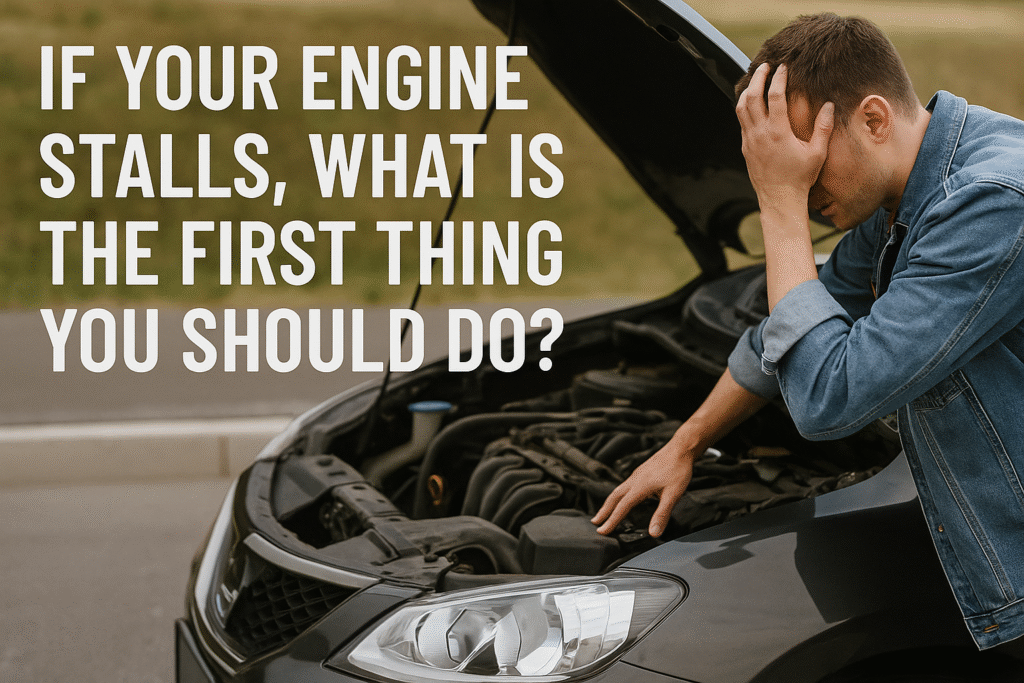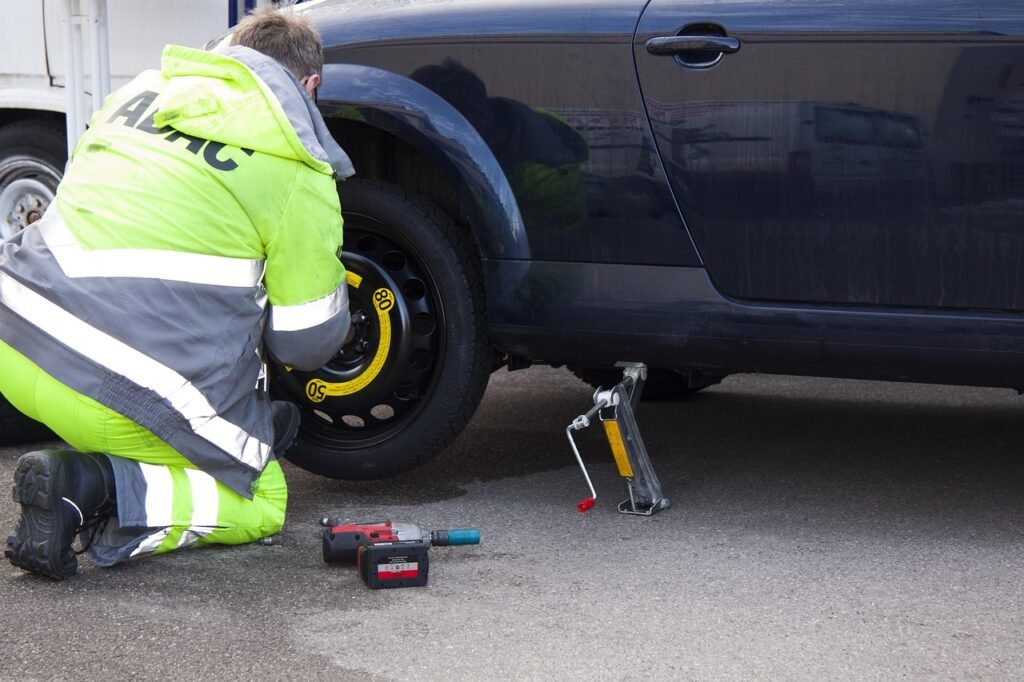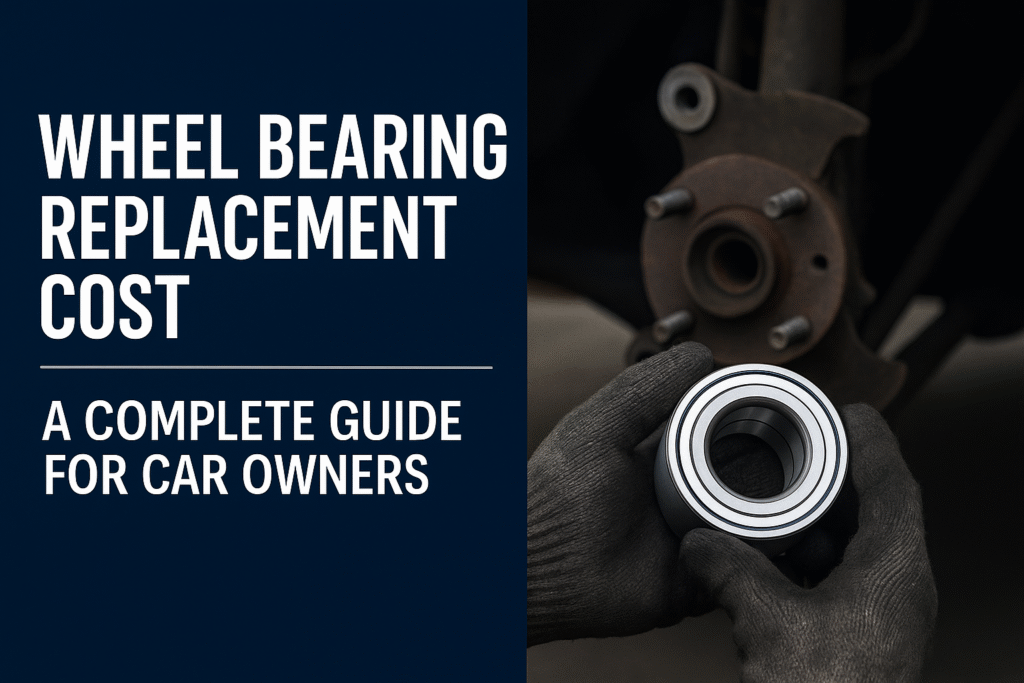Experiencing an engine stall can be alarming, especially if it happens while you’re driving. The good news is, knowing what steps to take immediately can help you stay calm, ensure your safety, and potentially prevent further damage to your engine. In this comprehensive guide, we’ll walk you through what to do if your engine stalls and the first thing you should do to get back on track safely.
What Happens When Your Car Engine Stalls?
An engine stall occurs when your engine unexpectedly loses power and stops running. This typically happens when there is an issue with your car’s fuel, ignition, or electrical systems. It can occur while the vehicle is idling, accelerating, or even driving at high speeds. If you’re caught off guard, you may feel a loss of power or hear the engine sputter and shut off.
Common Symptoms of an Engine Stall:
- Loss of power: You may notice the engine shutting down or struggling to maintain RPMs.
- Dashboard warning lights: Check for illuminated warning lights like the check engine light, battery light, or oil pressure warning.
- Sudden engine noise or a rough idle: The engine might make odd noises or shake before it stalls completely.
Understanding these symptoms will help you recognize the problem and know what to do next.
Immediate Steps to Take After an Engine Stall
1. Stay Calm and Assess the Situation
The first thing to do after your engine stalls is to stay calm. While it can be frightening, panic will only make the situation worse. Keeping a level head will help you make the right decisions quickly.
2. Ensure Your Safety: Pull Over to a Safe Location
If your engine stalls while you’re driving, safely pull over to the side of the road. Turn on your hazard lights immediately to alert other drivers that your car is stopped. If you’re on a busy highway or in a high-traffic area, steer your car to the shoulder or into a parking lot if possible. Make sure you’re as far from traffic as possible to avoid accidents.
3. Keep Your Foot on the Brake and Shift to Neutral (If Moving)
If your car stalls while you’re still moving, keep your foot on the brake to prevent the car from rolling or losing control. Then, shift into neutral. This step will help you regain control and stop the vehicle without further stress on the engine or transmission. Engage the parking brake once you’ve stopped completely, especially on an incline.
Troubleshooting: What to Check if Your Engine Stalls
4. Check for Obvious Signs of Problems
Once you’re safely stopped, it’s time to check for visible problems:
- Fuel Gauge: Is there enough fuel? Sometimes, a stalled engine can simply be a result of running out of gas.
- Dashboard Warning Lights: Look for any illuminated warning lights. If the check engine light or battery light is on, this could point to an underlying issue.
- Loose or Disconnected Wires: Check around the engine bay for any loose or disconnected wires, which could affect the ignition or fuel system.
5. Examine for Potential Fuel Supply Issues
A common cause of engine stalling is an issue with the fuel system. If you suspect a fuel supply problem:
- Check if there’s enough gas in the tank. It sounds simple, but it’s easy to overlook.
- Inspect the fuel pump: If you’ve recently had trouble starting the car or hearing strange sounds from the fuel pump, it might be malfunctioning.
- Clogged fuel filter: A clogged fuel filter can restrict the flow of fuel to the engine, causing stalling. Replacing it may fix the issue.
6. Look for Electrical or Battery Problems
Electrical issues can cause the engine to stall if there’s a problem with the alternator or battery. Check the battery connections for signs of corrosion or loose cables. If the alternator is malfunctioning, your car may stall because the electrical system cannot maintain power.
7. Investigate the Ignition System
A faulty ignition system, including a broken ignition switch or bad spark plugs, can also cause an engine to stall. Inspect your ignition components if you’re able to, and consider having them checked professionally if you suspect they’re the cause.
What to Do if You Can’t Get the Engine Started Again
8. Attempt to Restart the Engine
If the engine stalls and you’re able to safely restart it, try the following:
- Turn the key to the “off” position for a few seconds, then attempt to restart the engine.
- If the engine doesn’t restart after a couple of attempts, give it a few moments before trying again.
9. Seek Professional Help
If your car won’t restart, it’s time to call for roadside assistance or a mechanic. It’s important not to keep trying to start the engine repeatedly, as this can damage the starter motor or other components. Roadside assistance can help you troubleshoot the problem or tow your car to a professional service center.
Common Causes of Engine Stalls and How to Prevent Them
10. Fuel System Issues
One of the most common reasons for an engine stall is a problem in the fuel system. This could be a clogged fuel filter, a failing fuel pump, or even an empty fuel tank. To prevent these issues:
- Replace the fuel filter according to your vehicle’s maintenance schedule.
- Check the fuel pump regularly and listen for any unusual sounds that may indicate a malfunction.
11. Electrical System Problems
A weak or failing battery, a bad alternator, or worn-out spark plugs can disrupt the electrical supply and cause the engine to stall. Regularly check the condition of these components and replace them as necessary to avoid stalling.
12. Ignition or Spark Plug Failures
The ignition system is crucial for engine operation. If the ignition switch, spark plugs, or wires are faulty, your car may stall. Ensure that you change your spark plugs at the recommended intervals and have the ignition system inspected regularly.
13. Airflow Issues: Dirty Air Filter
A clogged air filter can restrict airflow to the engine, causing it to stall. Replace your air filter every 12,000 to 15,000 miles to keep your engine running smoothly.
14. Engine Overheating
If the engine overheats, it may stall to prevent damage. Ensure that your vehicle’s cooling system is functioning properly by regularly checking the coolant levels and maintaining the radiator and hoses.
Long-Term Solutions: How to Prevent Future Engine Stalls
15. Regular Vehicle Maintenance
Regular maintenance is essential for preventing engine stalls. Follow your vehicle’s maintenance schedule for oil changes, spark plug replacements, air filter changes, and fuel system servicing. Keeping up with routine maintenance ensures your vehicle operates at peak efficiency and helps avoid unexpected stalls.
16. How to Spot Early Signs of Engine Trouble
Keep an eye out for early warning signs of engine issues that could lead to stalling. These include:
- Difficulty starting the car
- Unusual engine sounds
- Poor acceleration or power loss
Addressing these issues early can help prevent stalling and more costly repairs in the future.
When to Call for Professional Help: Knowing When You Need an Expert
17. Persistent Stalling or Difficulty Starting
If your vehicle continues to stall frequently or you’re unable to restart it after several attempts, it’s crucial to get professional help. A certified mechanic can diagnose the issue with specialized equipment and expertise.
18. Roadside Assistance: When You Need to Call for Help
If you’re unable to resolve the issue and the car remains stalled, don’t hesitate to call for roadside assistance. This service can safely tow your car to a repair shop or help with minor fixes on-site, such as a jump start or fuel delivery.
Conclusion
Knowing what to do if your engine stalls is crucial for your safety and the health of your vehicle. By staying calm, pulling over to a safe location, and troubleshooting common causes, you can quickly assess the situation. Remember, regular vehicle maintenance is the best way to prevent engine stalling in the future, but if the problem persists, don’t hesitate to call for professional help. Stay safe and keep your car running smoothly!
Frequently Asked Questions (FAQ)
Why does my car keep stalling at idle?
Frequent stalling while idling could be due to issues like a dirty air filter, fuel delivery problems, or a malfunctioning idle control valve. It’s best to have a mechanic diagnose the issue.
How can I prevent my engine from stalling in the future?
To prevent future stalls, perform regular vehicle maintenance, such as changing the fuel filter, spark plugs, and checking the battery and alternator.
Is it safe to drive a car that stalls occasionally?
Occasional stalling may indicate a minor issue, but if the problem persists, it can become a safety risk. Have your vehicle inspected to prevent further breakdowns.



